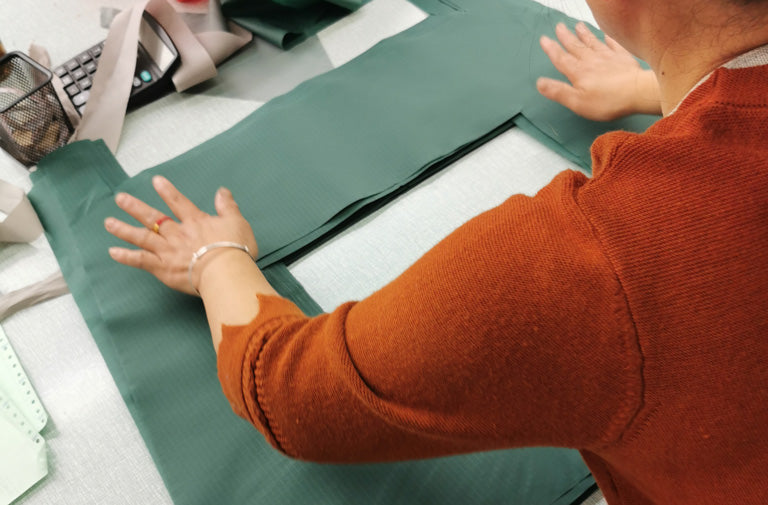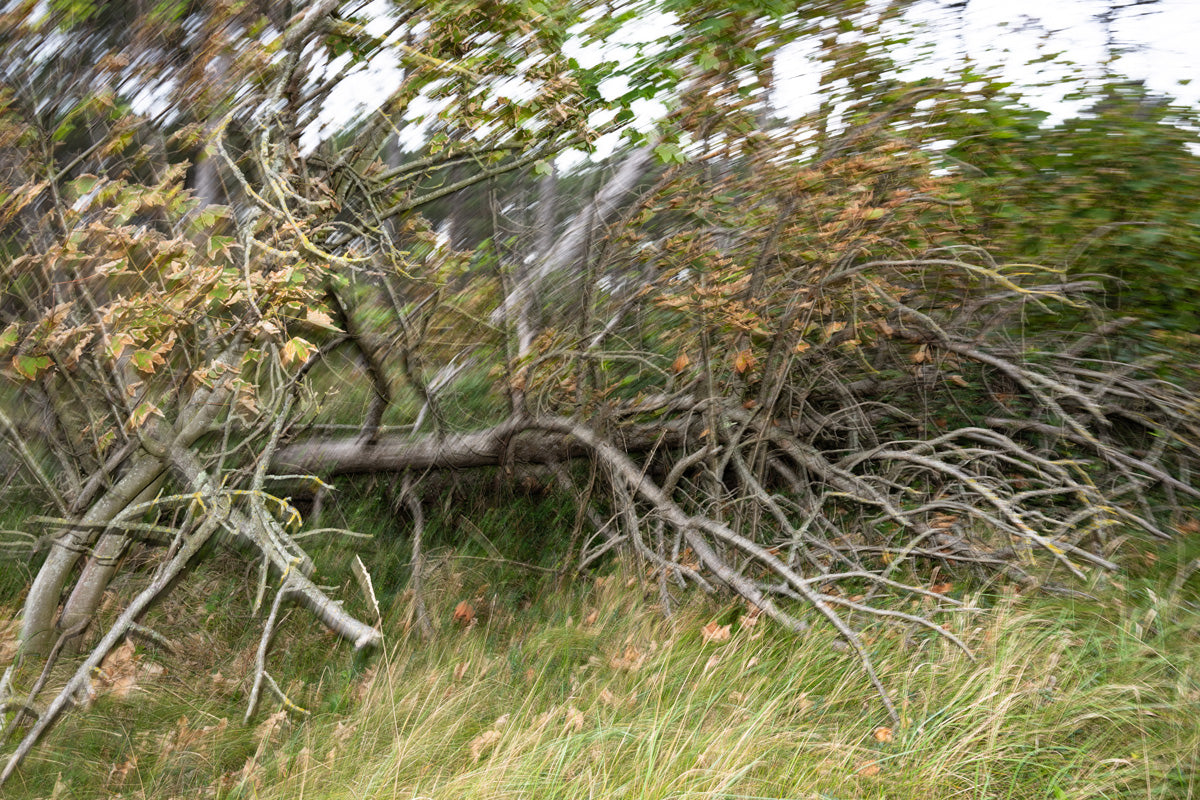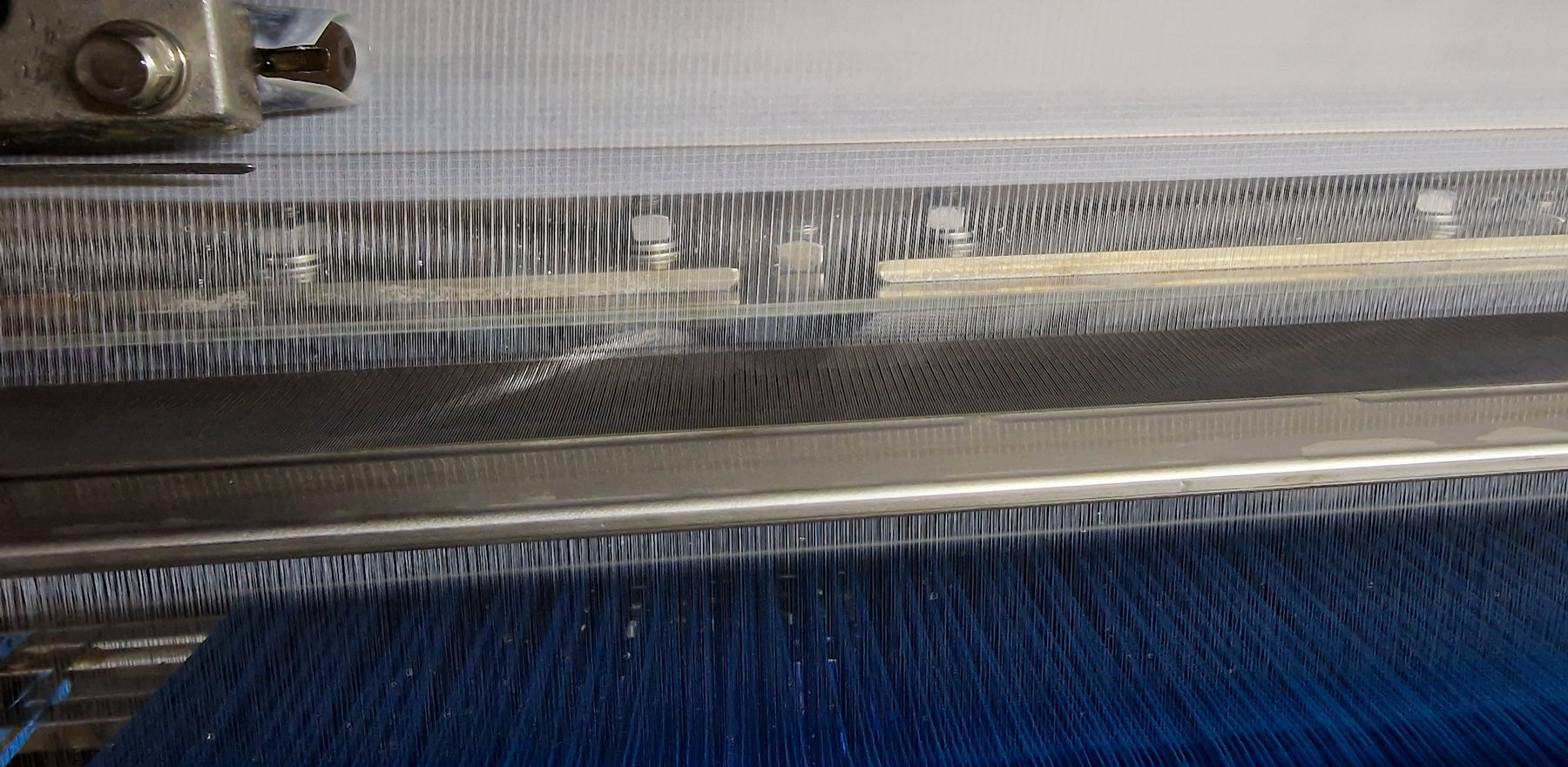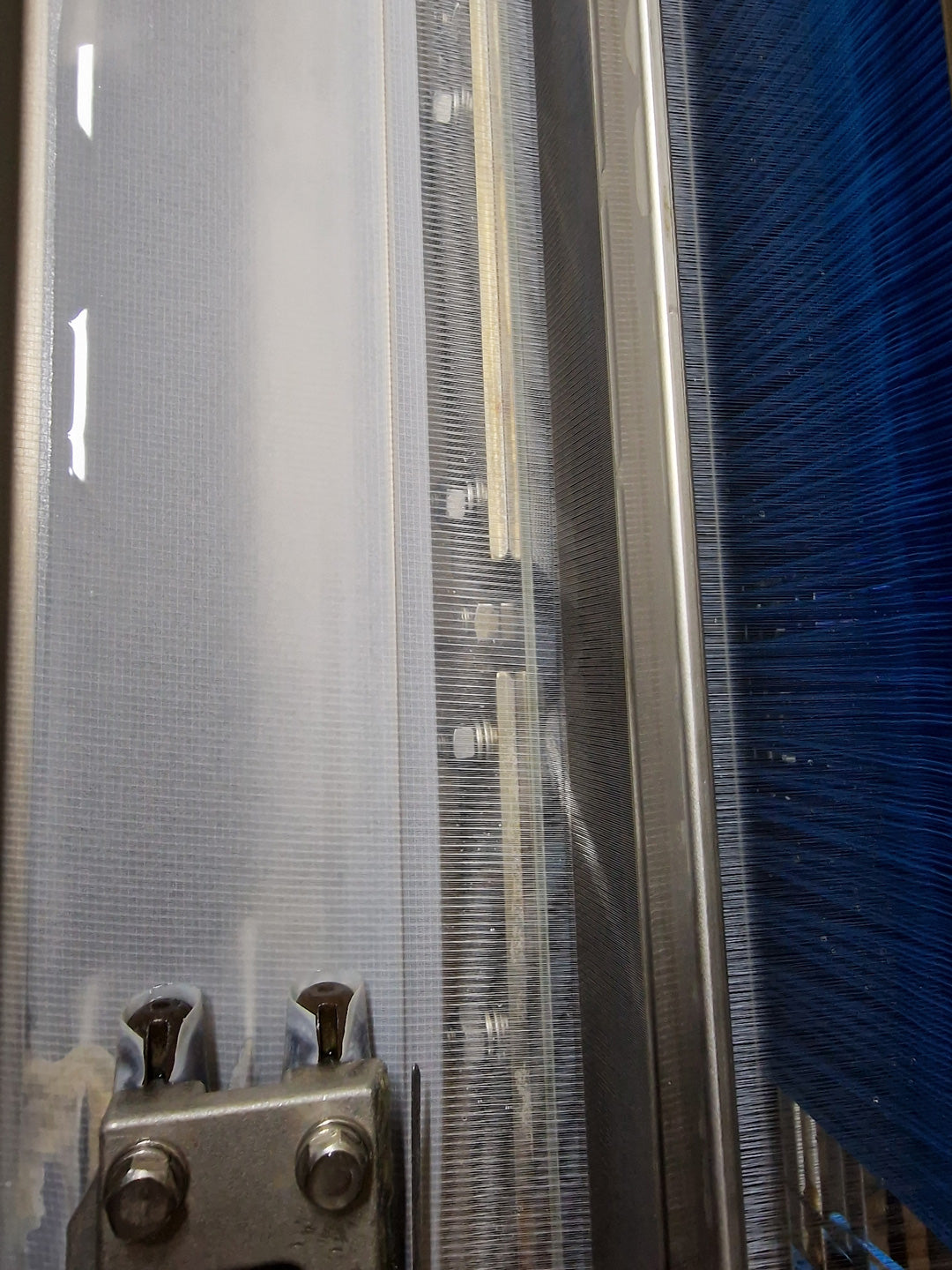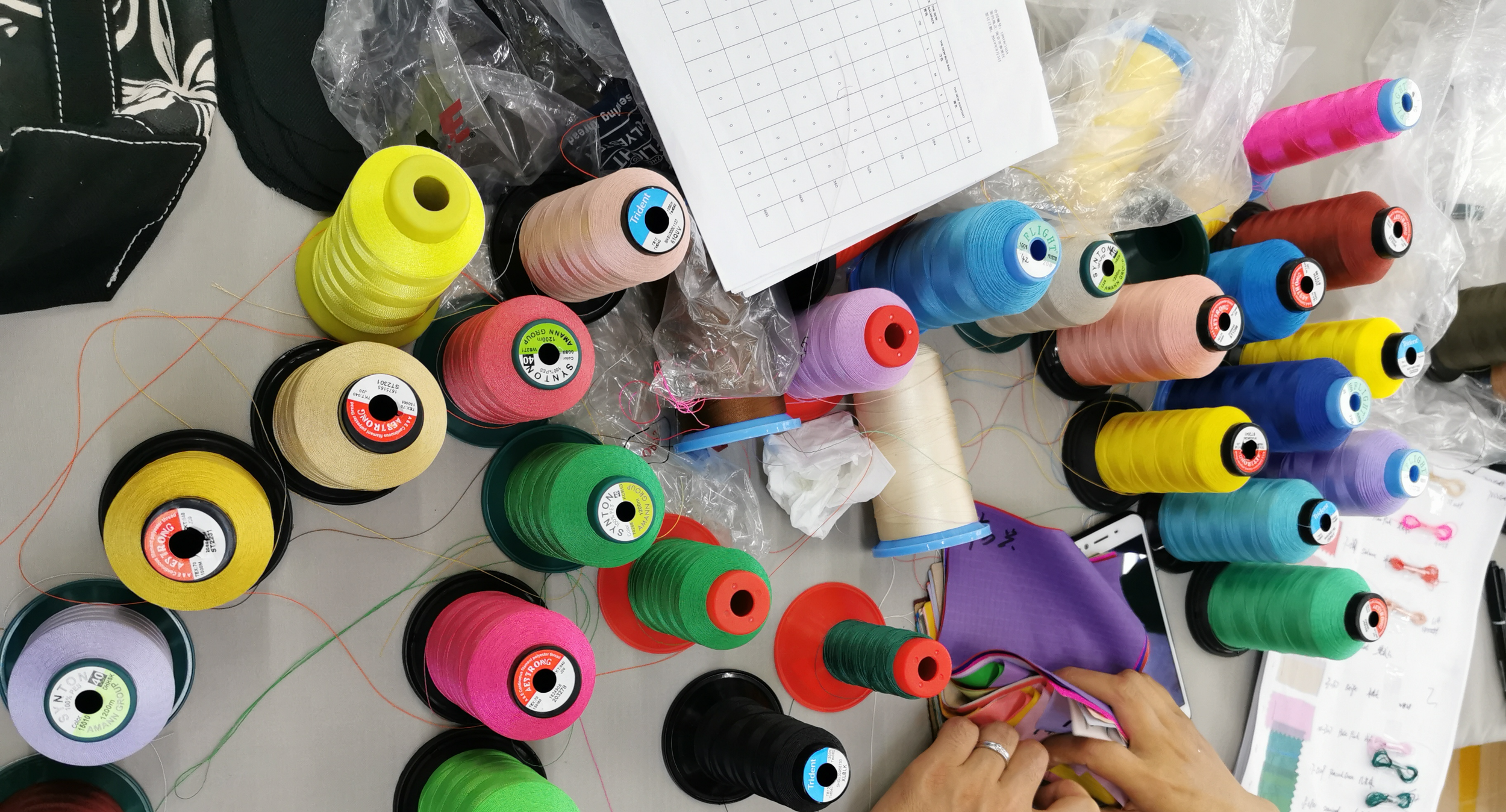About our production
We want to shed some light on our production process and our materials.
We do thorough research to understand why and how our factories are approved with quality marks, and we are always looking for additional improvements.
Even though we are publishing this information now, it will be a work in progress. We are committed to continuous improvement.
-
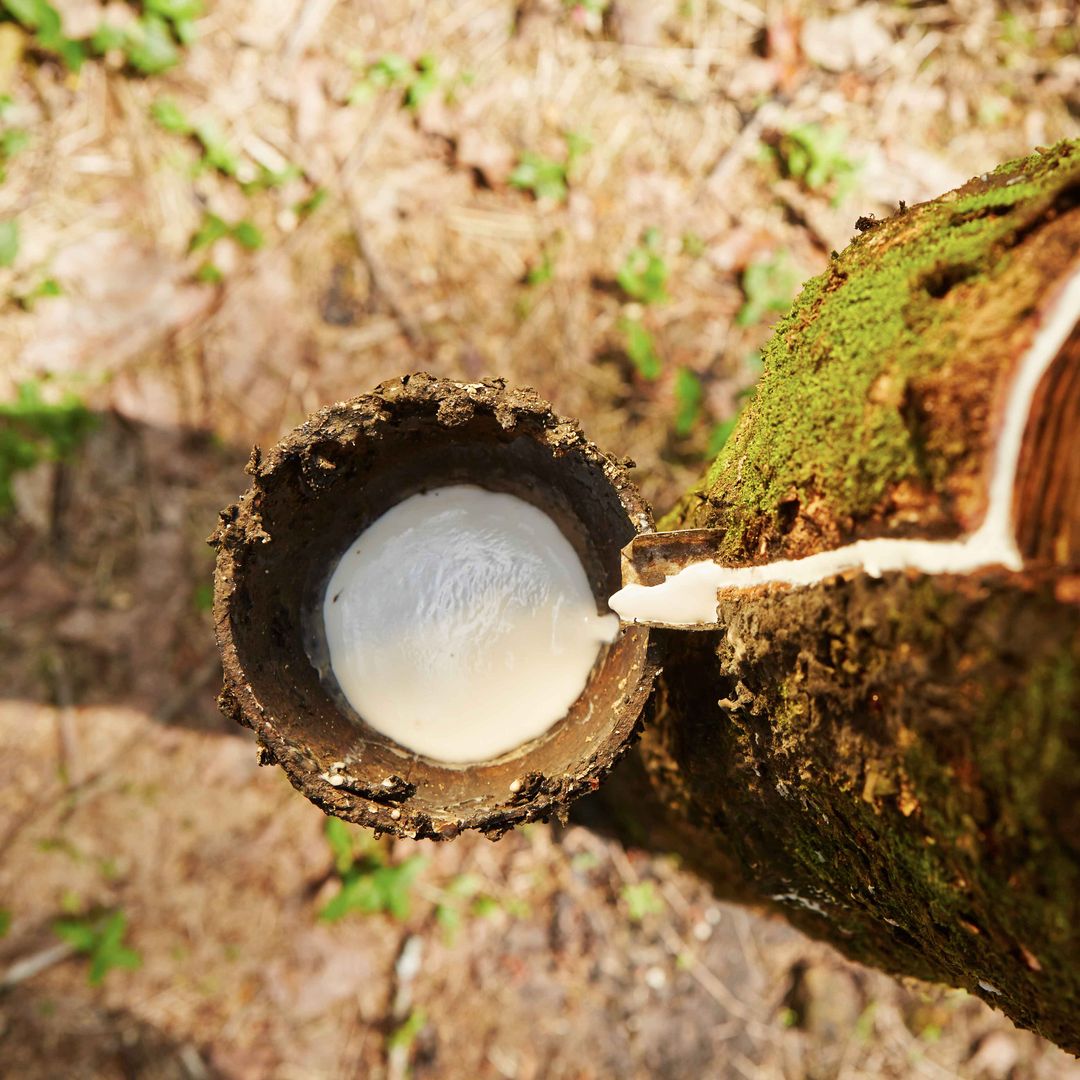
YULEX®
YULEX® is a natural rubber alternative developed with Patagonia for their neoprene wetsuits. It replaces the synthetic neoprene we have been using in the past to make laptop pockets and sleeves.
YULEX® presents the same qualities as its predecessor: soft, thick and reliable for many years of protection. -
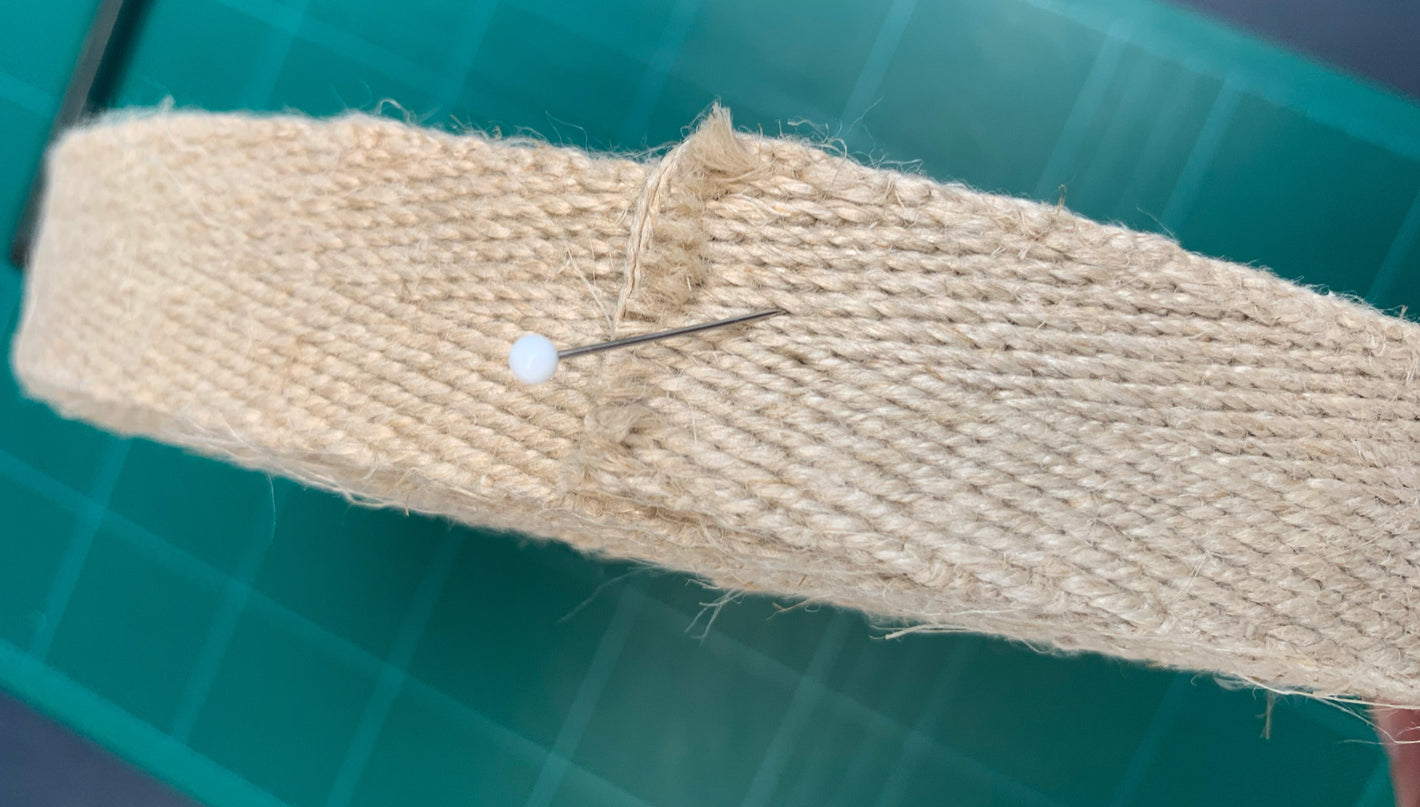
Hemp
Hemp is highly durable and long-lasting, and growing and processing it has very little harmful environmental impact compared to other natural fibres. It is a renewable fibre that grows quickly and heartily in various climates, requires little water, and can benefit the soil by replenishing vital nutrients.
Hemp replaces the nylon webbing used for handles and straps in The New Foldable Backpack, The New Trash Bag, The New Stash Bag, and The New Tote Bag. -
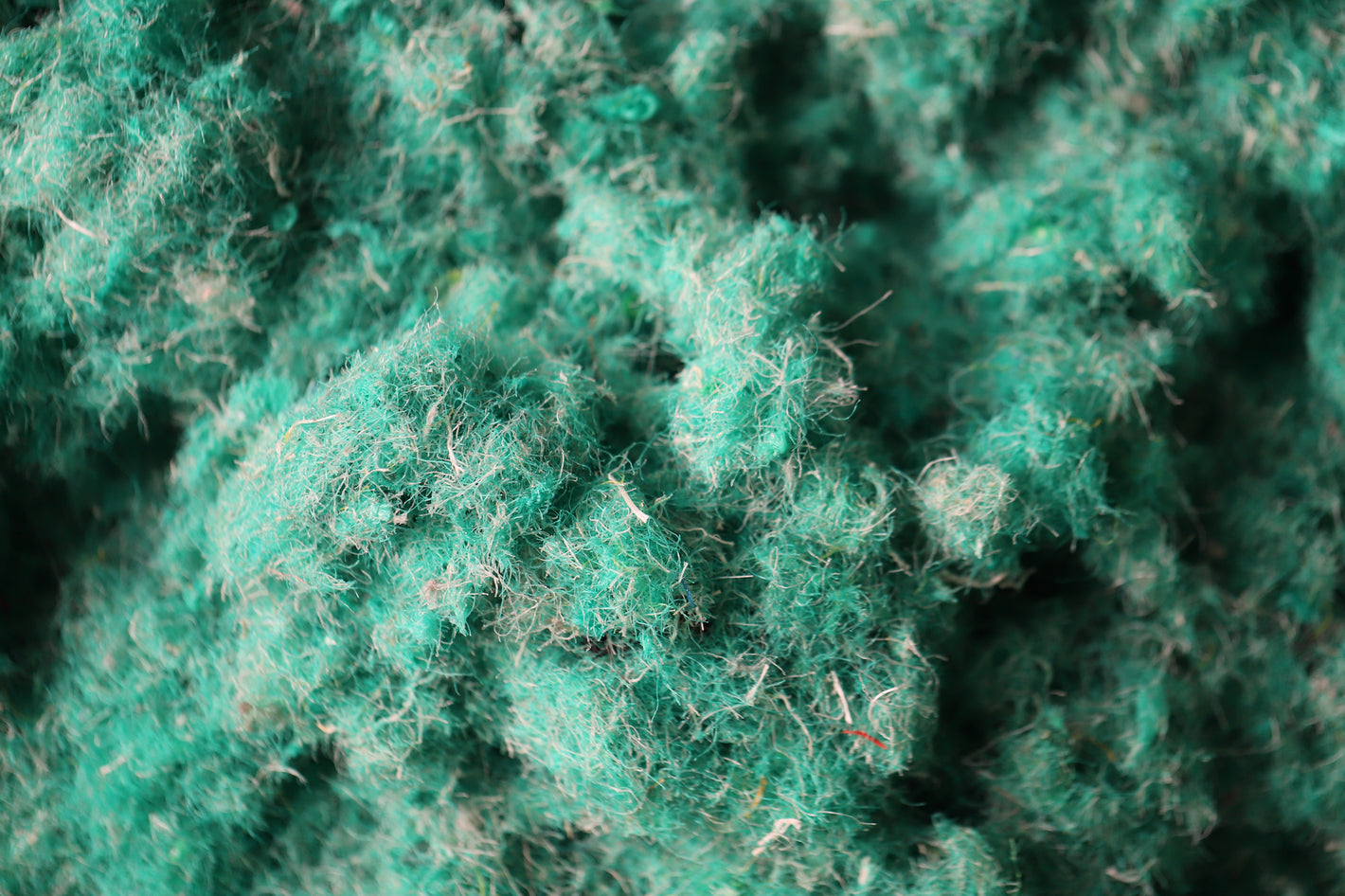
Recycled components
We now create our labels and zippers from recycled nylon yarn.
We replaced the plastic bottom panel in our medium bum bag with 100% ReTraze recycled polyester.
We can now guarantee a recycled TPE coating on our 300D fabric, and our 70D fabric coating is now also Bluesign® certified, just like the dyeing of all our fabrics.

Fabrics
We use recycled ripstop nylon and polyester because the thread is strong, lightweight, and will last a very long time. These characteristics are difficult to match with an alternative, natural material. With that in mind, recycled nylon and polyester are the most sustainable option for our products right now. We are actively searching for a way to translate these qualities into another (new) material. Hopefully, in the near future, we can say goodbye to all plastics, even recycled ones.
Our collections are produced in small amounts, calculated based on what we will sell. This way, we avoid overproducing. Our timeless designs are reproduced for every collection in different colour combinations. These designs will never go ‘out of season’ or ‘out of style’. Therefore, there is no pressing need for them to go on sale. We offer discounts when we choose to, not because items are from ‘last season’.
Production
Our production takes place in China. Four manufacturers contribute to making our products, as well as a printing house. In 2019, we moved our production from Vietnam to China because they can supply completely recycled fabrics and more sustainable options. Asia is the world leader in producing (recycled) synthetic fabrics and delivering high-quality manufacturing. Our ultimate goal is to produce locally. The realisation of local production relies on our search for new materials and the possibilities that come with it.
We appreciate the relationship with our Chinese partners and speak to our production manager daily. We have been learning a lot from them on a professional level and enjoy the teamwork. We visit our factories as often as possible for quality checks, to see the working conditions and to work together on improvements and sustainability. We went to China in 2019, and after a long COVID-related stop, we could finally visit again in 2023.
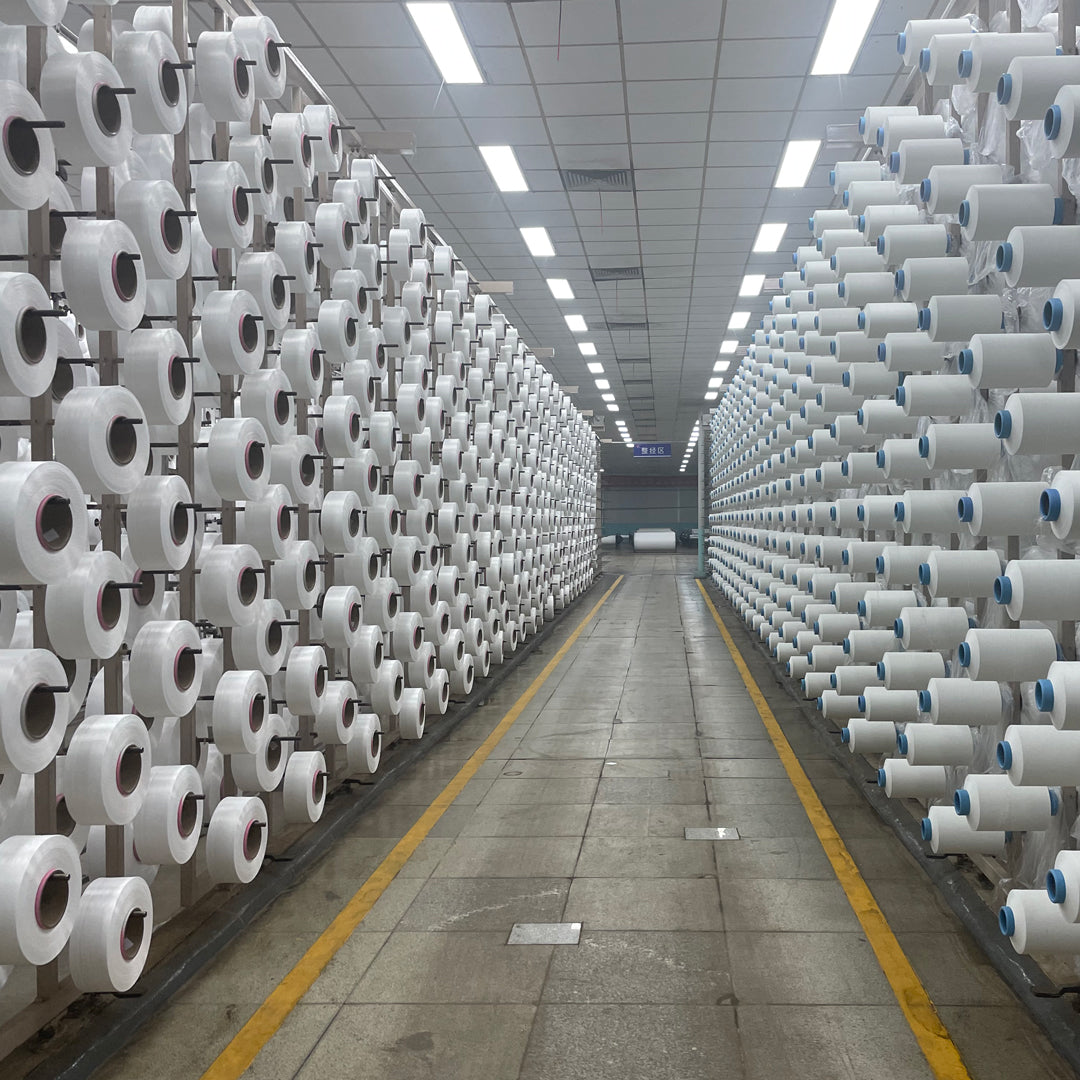
Zhejiang Province
Recycled fabrics
The production of our bags starts in the recycling factory, where raw materials are processed into yarns. We make recycled nylon (40D and 70D) and polyester (300D). Our recycled polyester thread is made from post-consumer waste, mainly plastic bottles and other plastic waste parts from clothing and bedding.
Our recycled nylon thread is made from pre-consumer waste. This waste comprises pieces from undyed and uncoated fabrics and thread remnants left after weaving nylon fabric.
The threads are woven into our ripstop cloths in the greige-making part of the factory. Greige is the name for the grey/beige-ish colour of the undyed fabric. Ripstop means to 'stop' a 'rip'; ripstop fabrics are made with a reinforcing technique that makes them more resistant to tearing and ripping. During weaving, more robust (and often thicker) reinforcement yarns are interwoven regularly in a crosshatch pattern.
Our fabrics are certified with the Global Recycle Standard (GRS), an international standard that sets requirements for third-party certification of recycled input. The GRS is a complete product standard that dictates social and environmental best practices, chemical restrictions for fabrics, and more. Regarding the recycled content of garments, which is 100% in our bags, the GRS confirms a responsible use of resources and processes that have the least possible impact on human health and the planet.
Quanzhou, Fujian Province
Dyeing
From the greige factory, the fabric goes to the dye house, where Susan's selected colours come to life. Our dye house is Bluesign© certified. The Bluesign© system aims to find solutions for sustainable textile production by eliminating harmful substances at each step of the supply chain and approving chemicals, processes, materials, and products that are safe for the environment, the workers and customers. For example, all the water used in the process is thoroughly cleaned before it leaves the factory sewer.
Colour is essential to our brand; unfortunately, natural dyes give very limited colouring options, and using them would compromise our brand too much. We work with the next best option, which provides us with vibrant colours and is processed safely for humans and nature.
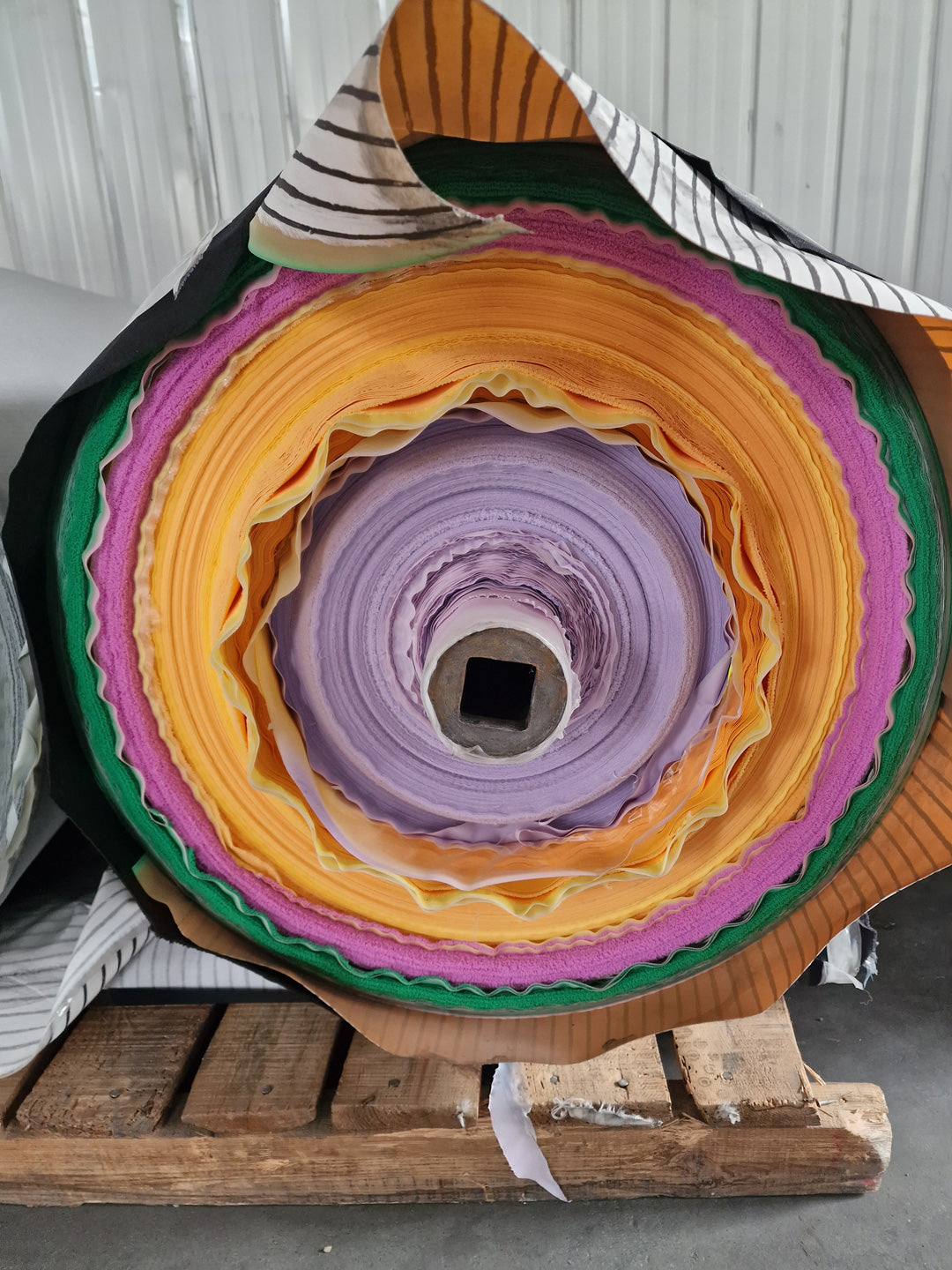
Suzhou
Coating
After the fabrics are coloured, they are sent to the coating house. The coating is our least favourite part of the process because it is the most difficult to do environmentally friendly; when done poorly, it has terrible quality failures. The coating makes our fabric crisp and improves its strength and durability. It also makes it water-resistant or waterproof.
We are thrilled to announce that since early 2023, our 70D coating has been Bluesign-approved.
Since 2023, we have implemented recycled Thermoplastic Elastomer (TPE) as the coating for our 300D products. While achieving the Bluesign© certificate for our polyester items in 300D presents more challenges, we remain committed to pursuing this goal.
We visit our factories as often as possible for quality checks, to see the working conditions and to work together on improvements and sustainability.
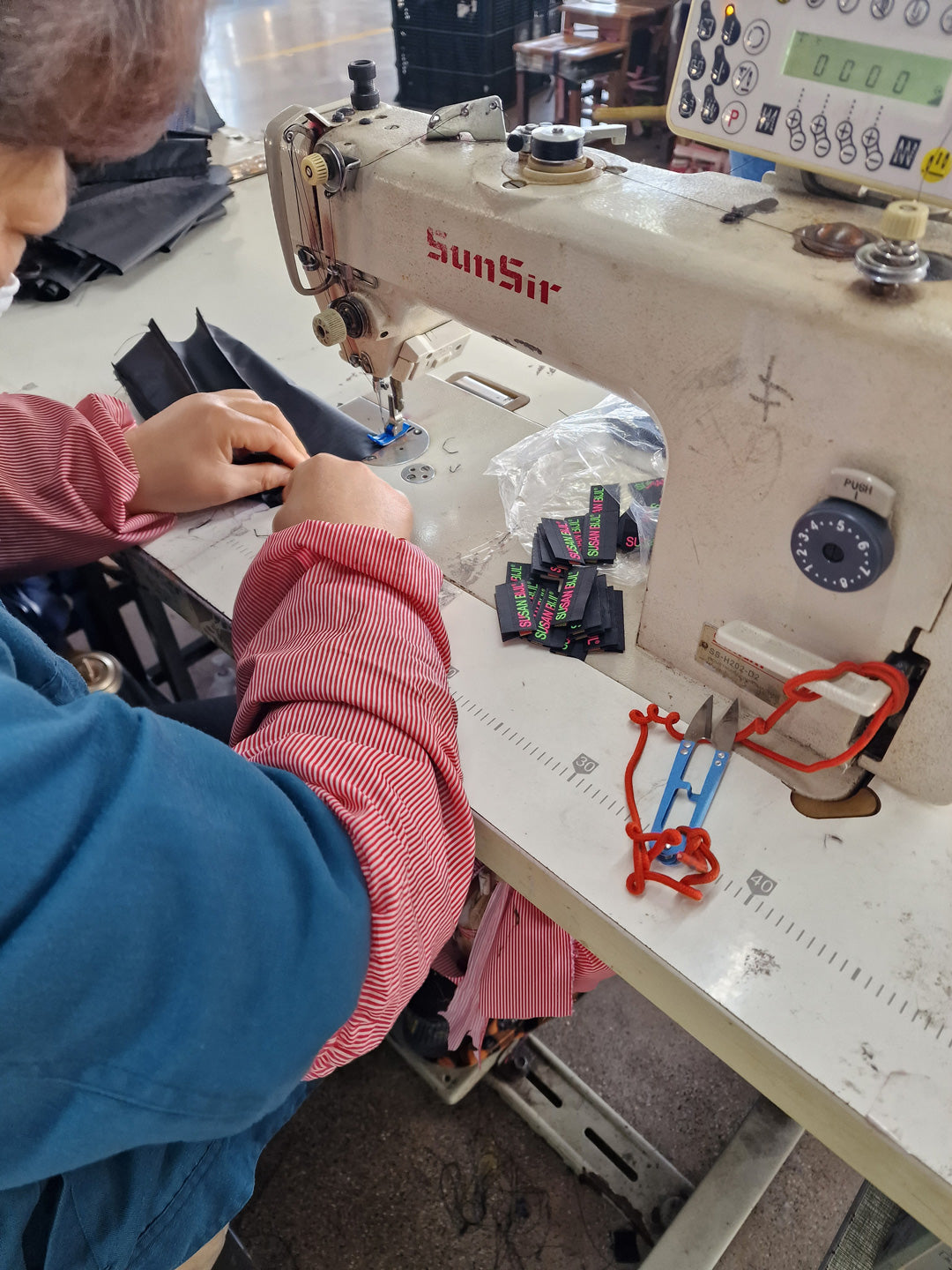
Danyang, Jiangsu Province
Sewing
For the final stage, we arrive at the sewing factory, where the coloured and coated fabric is cut and sewed into bags. Our patterns are cut with moulds, making it possible to cut them very close together, resulting in very little fabric waste. Small parts like loops are made with the little leftovers they do have. Other elements like zippers and buttons are imported and chosen according to a recycled and high-quality standard.
We screen print our bags, if necessary, in the same area. We work with an environmentally friendly oil-based ink for our silkscreen prints. The ink base is polyvinyl alcohol (PVOH), a solvent-resistant polymer which is heavy metal-free and PVC free. We worked with an oil-based ink instead of a water-based ink because a water-based print would wear off nylon too quickly.
The construction of our bags is a significant part of manufacturing a durable bag. We design minimalistic yet complicated patterns so your bag will stay intact after a few years of usage. The people working in the sewing atelier are craftsmen who can deliver the quality we are looking for.
The sewing factory is BSCI (Business Social Compliance Initiative) certified for social compliance. The certificate is re-issued every year after the audit, including improvement points. BSCI aims to improve working conditions, such as the right to form a trade union, safe working conditions, and no forced or child labour.
Lastly, our paper packaging and hangtags are attached with a cotton string, and the collection is shipped to the Netherlands.
Questions
We update this page whenever we improve our production process. If you have any questions, please to contact us at support@susanbijl.nl.
